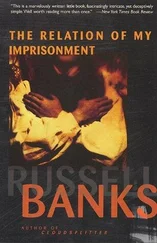To neutralize the effect of her wringing and tweaking, her sighs, her constantly wet eyes, her self-denying anticipation of needs he himself never even knew he had, Hamilton’s father applied the old male strategy of grim condescension. He disregarded her point of view, treated it as he would a simple child’s. She thinks she’s suffered, he would snort. Hah, she doesn’t even know what suffering is. She doesn’t know how lucky she is!
But this strategy couldn’t work as well for her son, because for Hamilton she was someone whom he first knew and continued for several years to know from the point of view of utter dependence. Condescension comes hard to sons, no matter how easily it comes to them later as husbands or fathers. For him to neutralize his mother’s wringing and tweaking, her long-suffering wet eyes, her whole series of practically irresistible invitations for him to draw on his guilt quotient, Hamilton had to devise a different and even crueler-seeming strategy. It was to affirm, as much as possible, his mother’s point of view. Let his father deny it, condescend to it, reject it any way he could. Hamilton would honor it, would validate it, would meet all its most stringent demands on him. If she felt injured or disappointed or deprived some-how, if she felt that her unfair burden of woe had been unfairly added to, he would do what he could to justify her feelings — to provide an objective correlative, as it were — by injuring her, by disappointing and depriving her, by adding, even if only slightly, to her burden of woe.
His description of the process by which he validated and honored her point of view went something like this: “When a lady makes a request, a gentleman has no choice but to meet that request. Sure, he can ignore it, but he wouldn’t be much of a gentleman, would he?” He was smiling, but the smile was characterized more by resignation than good cheer.
I had asked him pointblank why he had behaved toward his mother in a way that the rest of the community had regarded as a heinous way to behave toward one’s mother. He had first obtained the power, legal and financial, to evict his mother from the home she had lived in all her adult life, the house she had raised three children in and where she had lived in wedlock with a man, his own father, for over forty years, the house that had become the source and final resting place for a lifetime’s most personal memories and associations. He had obtained the power to evict her from this house, had obtained it under the guise of helping to care for her in her dependent old age, and, horror , he had used that power. He had gone ahead and evicted her. He had forced her to accept the extra room in her daughter Jody’s small and crowded trailer and to have the costs of her room and board paid by her other daughter, Sarah. Hamilton had forced Alma into becoming her daughters’ burdens of woe, he had forced her into deepening their sense of having been injured. He had given them, thereby, control over her. For he had forced her into the role, for the first time in her life, of victimizer, of depriver, of oppressor.
This was not, of course, what the community saw in it, but it is what eventually I came to see in it. Gradually, as I pondered Hamilton’s cryptic, seemingly irrelevant answers to my questions, I came to believe that his eviction of his mother that night was an almost inevitable consequence of the years in which he had honored her need to be injured. Doubtless, in time she had gradually come to realize that he did not feel guilt for his role as injurer, at which point she played her last card, so to speak. She would force him to reject her altogether. She would up the ante. Which, from Hamilton’s point of view, gave him no alternative but to raise her bet and force the next round of the game into play. Did she want him to be that ungrateful a son? All right, if that’s what she wanted, it’s what she got. After all, she was his mother and he could do no less for her than try to provide for her what she really wanted.
“I learned something about women from that experience,” he told me one evening at the Bonnie Aire, where we had gone for a few drinks. It was a hot, overcast, Friday night, the July following his eviction of his mother.
What had he learned about women? I asked him (having at the time intimations of some future troubles with women, whom I then understood almost not at all).
He learned, he told me, a woman’s greatest power over a man is her ability to turn her suffering into a virtue. She converts the one into the other, completely. She makes a condition of being female — and a wife and mother — into an ethical feat, which feat we as men have no choice but to reinforce. Most men don’t understand this conversion, he explained, and that’s why most men, rather than reinforce the conversion, deny that it’s even taken place. They treat their women as if they were still suffering. But what we’re supposed to do, what they want us to do, is to reinforce the conversion by acknowledging it and making it possible for the process to continue. So, naturally, what they want is for us to increase their suffering, to build their supply of it back up at least to where it was before they managed the difficult task of converting it into something that gave them power, the power of possessing virtue.
He paused and chugged down his glass of ale as chaser to the shot of Canadian Club he had tossed down right before speaking. I remained silent. Hamilton seldom spoke at this length (not to me, not about a subject that he knew was important to my understanding of him), and I didn’t want to distract him with my presence.
“And I’ll tell you something, something that I’ve not told anyone else,” he said, looking down at the empty glass, turning it in his huge hands. “It ain’t easy, giving them what you know they want. Especially when it’s your mother. Because the spring the whole thing, the conversion thing, works off is guilt. Male guilt.” He explained that it’s only to a man that a woman’s suffering looks like an ethical feat. Other women look at it with envy, or, if they’re a little protective of their own brand of pain, they see it as pathetic, or maybe they look at it with fear, because they know a woman who suffers more than they do cannot honor their own conversions. But a man sees it differently. Only a man can admire the pain, can acknowledge the bearer of it as virtuous. And the reason a man sees it this way is because he bears with him a quantity of guilt, nameless because he’s born with it, having been born male in this world where one-half of the species dominates the other half. Hamilton wasn’t saying it was right or wrong, that domination. He was just saying that it exists. The dominant one in any pairing off feels guilty for that fact, whether he knows it or not. And because most men don’t know they feel guilty, guilt in general, rather than in the particular case, most men don’t see what’s being asked of them by the particular cases before them.
He was sweating across his forehead and upper lip. Two large fans, one in each of the back corners of the tavern, were not cooling the place much. The temperature outside was the same as the temperature inside, and all the fans accomplished was to create movement in the heated air, which was sufficiently close to body temperature so as to be incapable of cooling anybody. The bartender leaned morosely on his elbows and stared at the front door. There were no customers aside from Hamilton and me. The waitress, a tubby woman with frizzy orange-dyed hair, sat on one of the barstools, her tray plopped on her lap. Hamilton and I were in a booth close to the door.
A man’s guilt, he told me then, wants him to eliminate the suffering of the particular case in front of him, so gradually he tries, and sometimes he thinks he succeeded, only to see it reappear a moment later, in her face, her hands, her voice. Some men, after a while, realize that the particular case has nothing to do with their generalized guilt, and what they do is to dismiss the particular case, to deny its hold on them. As Hamilton’s father had done. He had ended up ignoring Alma’s virtue and had treated her suffering “as a plain pain in the ass,” to use Hamilton’s words. It’s easier on the man that way, he explained. But harder on the particular case, the woman. The only honorable thing a man can do is, first, realize that this particular case’s pain has nothing to do with his guilt. That lets him deal realistically with the particular case, but it also means that he can’t kid himself about there being any easy removal of his generalized guilt. “No,” he declared, “you’ve got to learn to live with it. You’re not going to change society, so you just have to learn to live with it. Right?”
Читать дальше












